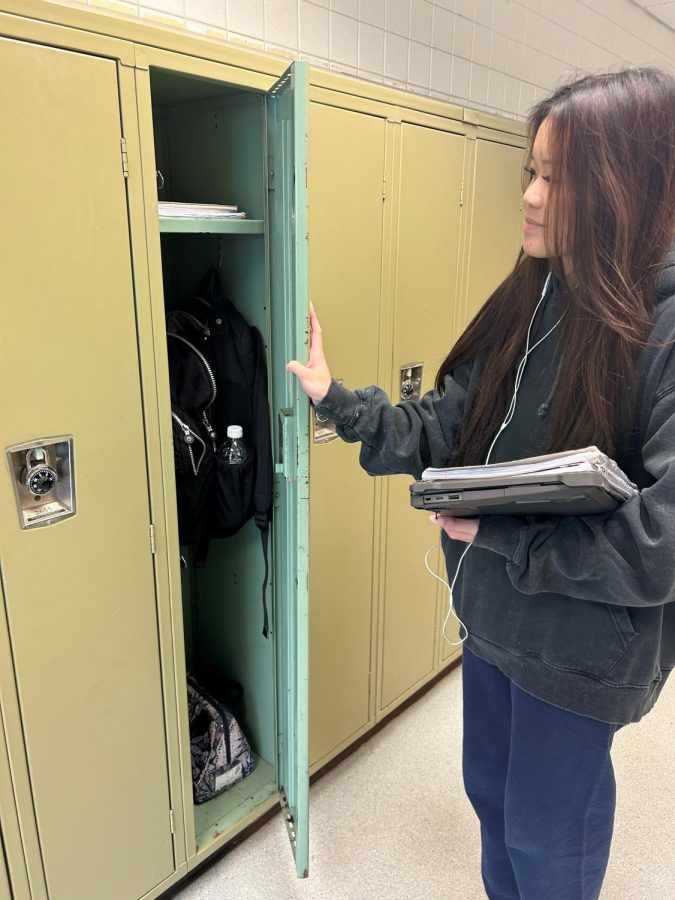4 Mistakes We All Make When Trying To Cheer Someone Up
Photo provided by Tribune News Service.
May 20, 2015
We’ve all been there: A friend seeks us out to open up about an issue in their life that’s causing them distress. Maybe we think what they’re going through is trivial, so we spout off a quick reply in attempt to reassure them it’s nothing. Or maybe we think what they’re up against is so crazy or awful that we couldn’t possibly help them in any way, and we have no idea what to say, so we just blurt out… something. Either way, we later realize our efforts to make them feel better may not have been the best way to react.
Unfortunately, despite our good intentions, attempting to cheer someone up can backfire _ in part, researchers believe, because those on the receiving end of our well-meaning efforts may feel indebted to us after the fact, be embarrassed at needing support in the first place or interpret offers of assistance as confirmations that they’re weak or incompetent.
The fallout from failed bids to boost our friends’ moods can also take a toll on our own well-being, dragging down our happiness, depleting our patience with someone who’s suffering and leaving us less satisfied in our relationships with them.
But lest we give up altogether on consoling our pals (after all, that’s what friends are for, right?), there are a few science-backed strategies we can deploy to prevent all parties involved from feeling hurt or regretting our words or actions.
THE SLIPPERY SLOPE OF SUPPORT
You mean well, but your actions may backfire.
Relating to others is a basic human need. And feeling adequately supported _ neither overly controlled nor too often ignored _ by our friends and loved ones is crucial to satisfying that need.
But support can be tricky, especially because to truly be there for someone else can involve an uncomfortable level of intimacy and vulnerability on our own part, says Karyn Hall, Ph.D., creator of DBTcoaching.com and author of The Emotionally Sensitive Person. The wish to dispel negative emotions the moment they crop up often causes us to push friends in need toward optimism too soon or to try to fix their feelings through advice that may not be right for them. All of this bypasses what our friends usually need in moments of turmoil: emotional validation, or, in Hall’s words, “the recognition and acknowledgment that their internal experience is understandable and acceptable.”
Sometimes this means simply being there for your friend, no matter what. Other times it calls for truly and mindfully listening to their troubles, granting them your full attention and being completely present, Hall explains. Either way, the point is to convey to your friend that they do fit in and they’re not weird or unacceptable. “If you validate someone’s emotions, those emotions decrease in intensity, allowing the person who felt them to think more clearly,” Hall says.
DANGER ZONES
There are four common things we all do (us too!) when intending to comfort a pal that can actually make the situation worse for them (and us in turn). But these potential traps are easy to sidestep.
1. Being Mr. or Mrs. Bright Side
You might think putting a positive spin on a friend’s problem(s) would help them cheer up. But reframing setbacks _ like totally bungling a job interview or being broken up with _ as great opportunities _ “Don’t worry! You’re so great, you’ll find something better!” _ may make some people feel invalidated, unheard and misunderstood, says Denise Marigold, Ph.D., assistant professor of psychology at Renison University College.
Reframing setbacks as great opportunities may make some people feel invalidated.
The people least likely to enjoy peering through others’ rose-colored lenses are those with low self-esteem, Marigold adds. They interpret so-called positive reframing as feedback that their reactions aren’t acceptable or it’s not OK to feel negatively.
“All of us have a bias toward wanting others to see us as we see ourselves,” Marigold explains, tipping her hat to what psychologists call self-verification theory. “Because people low in self-esteem tend to hold a more pessimistic view of potential outcomes and take failures more personally, hearing a friend say ‘No, it’s fine; you’ll do better next time!’ makes them feel that friend doesn’t get them.”
Do this instead: Rather than pointing out silver linings or urging our buds to keep their chins up, Marigold advises to engage our listening skills, pay attention to the emotional content of what our friends are saying, and validate what they’re feeling. This doesn’t mean you have to agree with them _ especially not if they’re telling you how worthless, stupid or otherwise defective they are as people. But, she says, a genuine attempt to convey that their frustration is perfectly reasonable and appropriate _ a la “That sounds so disappointing. You were really let down, weren’t you?” _ can at least make them feel heard and connected to someone who cares.
someone who cares.
2. Offering Unsolicited Advice
Unsolicited Advice
We know you’re not trying to be dismissive when you give a friend a few tips on what you think they should do when they’re down in the dumps. But unrequested recommendations about what’s in someone else’s best interest may make them less likely to enjoy our company and potentially encourage them to do the opposite of whatever we suggest.
“Often, people know what they want to do or should do,” Marigold says. “They’re coming to you to feel understood and cared for, not because they want you to give them a solution.”
Do this instead: Unless someone asks for advice, don’t give it, Marigold recommends. It’s better to ask questions about their situation to better understand what they’re going through. Try things like: “It sounds like you felt abandoned, is that right?” “Then what happened?” “What did it feel like to hear s/he no longer wanted to remain friends?” “What did you say or wish you had said?” As they talk about their predicament, listen rather than trying to control the conversation, Marigold adds.
Telling a friend to see a shrink may not go over so well.
3. Writing a Referral
It can be heartbreaking to watch someone we love suffer and not have a clue how to help them. In such cases, we may be compelled to recommend they “get professional help.” While our intent may be to steer them toward solid care, we risk sounding dismissive, disinterested in actually being there for our friend and ultimately making them feel even less understood than they did when they first sought us out, Hall says.
Do this instead: Because there are numerous cases in which you may not be qualified to deal with or handle the magnitude of another person’s emotional turmoil (because how many of us are trained mental health professionals?), Hall recommends gently broaching the very uncomfortable proposition that someone may want to consider seeing a shrink.
For starters, don’t do it unless you have the mental wherewithal yourself to be compassionate. Read: If you’re hungry, tired or otherwise running low on patience, save the suggestion for a more optimal moment.
When you do get around to proposing this possibility, do so compassionately and with careful attention to avoid judgment or blame. To segue into the topic, Hall recommends something like: “My heart breaks because I can see the pain you’ve been in for a while now. I wish I knew how to fix this, and I’m definitely here for you. I wonder, though, if someone else who has better ideas and better training could help you get out of this pain as well. Have you ever thought about that?”
4. Spilling Your Own Guts
Besties share everything, so why not reveal your similar issues to a friend in need so they can compare or feel less alone? Because things can get dicey. You risk upstaging their suffering, overwhelming them at an inappropriate time with more woes than they can handle and ultimately leaving them feeling massively unheard.
Do this instead: Hall says it’s perfectly fine to share your own experience with a friend in turmoil _ provided you keep the focus on your friend. Don’t take their opening up as a cue to unleash your childhood woes, the fact that you hate your boss or your dissatisfaction with your partner’s performance in bed. But do empathize if and when you can, with something like “I’ve been in a situation where someone else made me feel small too, and it’s not fun,” or “After my last breakup, I didn’t think I was going to make it either. I felt so alone. I hear where you’re coming from. It sucks!” Then after you offer your own experience, be sure to steer the conversation back to your friend. “I felt like my whole life collapsed and that I couldn’t trust anyone ever again when that happened to me. Is this anywhere near to what you’re feeling?” is a good transition.
THE TAKEAWAY
The fact that nobody’s perfect is evident in our frequently bungled attempts to better a friend’s outlook when they’re feeling low. But many of our errors in this arena may come from overthinking what support entails. Rather than trying to solve a pal’s problems or tell them what we think they should (or should not) do, the most helpful approach can be simply to listen, explore with them what they’re going through and convey that we care, we’re here, and they’re most certainly not alone.















![Russian president Vladimir Putin took action to invade Ukraine on Feb. 24. According to the PBS Frontline episode Putins Revenge, Putin is obsessed with his image and how he and his countrys actions are portrayed. The Atlantics Julia Ioffe said, [Putin] watches tapes of the evening news over and over and over again to see how he’s portrayed, to see how he looks.](https://pawprintnews.org/wp-content/uploads/2022/04/putin-5277284_1920-900x596.jpg)















































